
What are LSI Keywords?
LSI Keywords are "latent semantic indexing" keywords, which really just means that they are keywords commonly paired with or related to other "primary" keywords. Sometimes these are also called "semantic keywords." As Google is placing more and more emphasis around content relevance, LSI keywords are becoming increasing more popular and important.
Google is trying to understand user intent when people are searching. Over time, these "relevant keywords" are discovered through users' search and browsing behavior. Generally speaking, people are usually searching either for a physical location, information or to make a purchase.
Say, for example, someone searches for "gelato" (especially during this time of year), they are most likely searching for a shop where they can physically go buy gelato. As you can see, places that sell gelato pop up in the local pack (another reason to invest in local SEO). However, Google is also trying to help inform me about what gelato actually is, with the information pullout to the right and the Wikipedia search result right under the local pack.
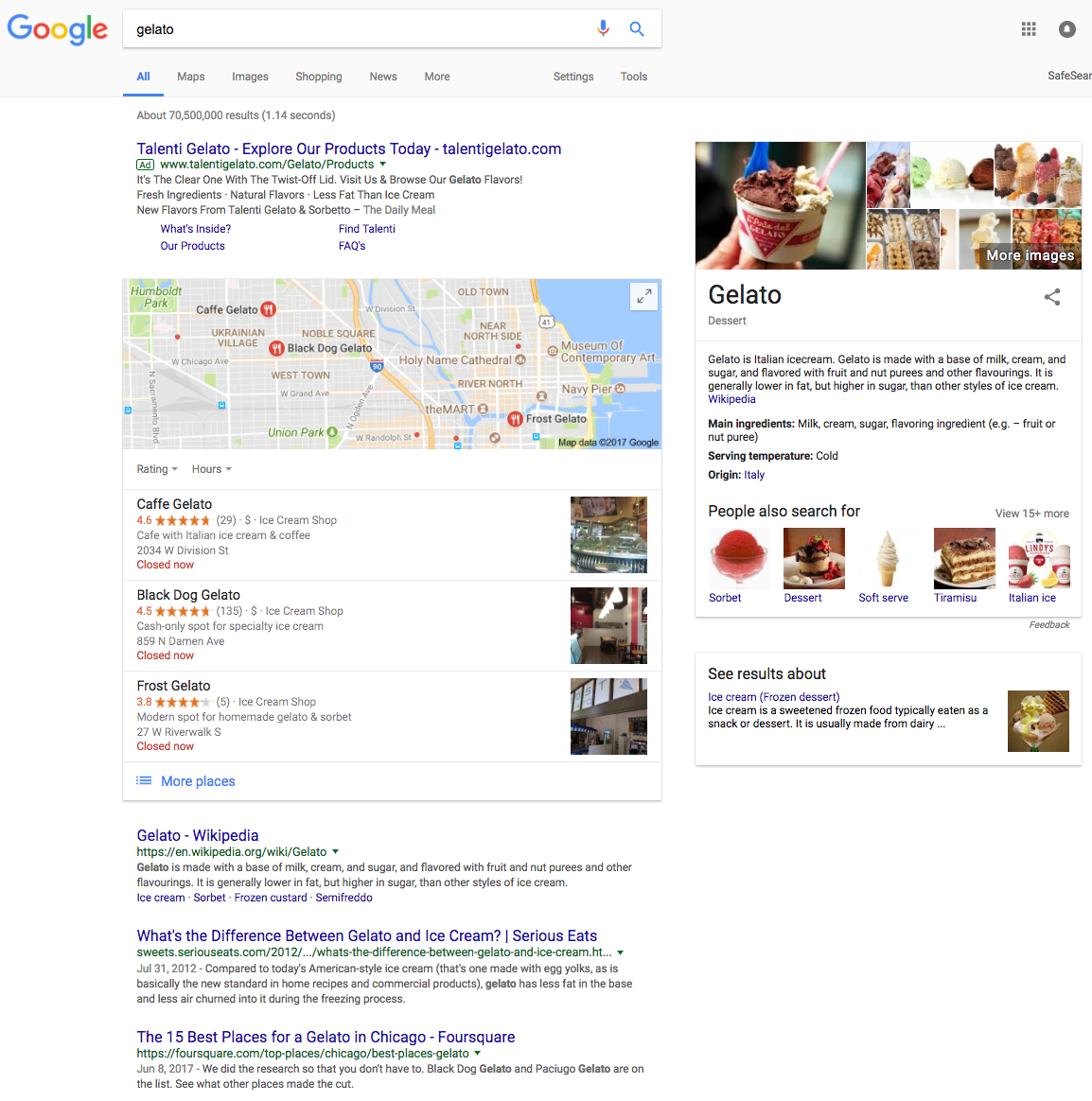
However, a few other common searches related to gelato include the following - which pre-populate, via Google Suggest, in the search bar and also appear at the bottom of the search engine results page (SERP). These are semantic keywords for the search term "gelato." So this is what populates when Google thinks I'm looking for information.
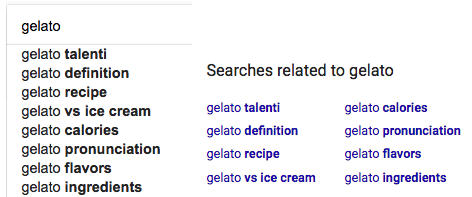
Now if I search for "gelato machine," Google now knows I'm looking to make a purchase, so the search results are very different. There is no local pack (because location doesn't really matter when I am searching to possibly purchase online) and instead, there are sponsored listings for Target, Crate and Barrel, Amazon and others.
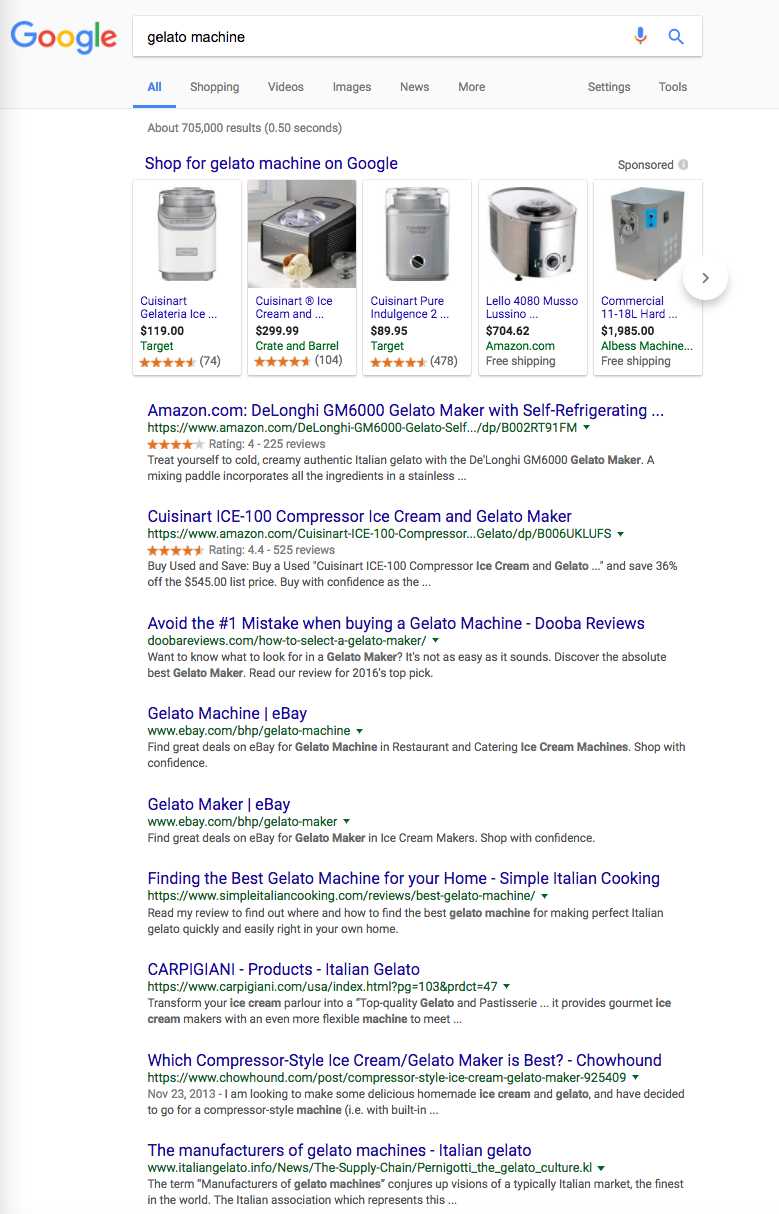
Now the LSI keywords that appear with the search "gelato machine" are as follows:

So you can see the difference in the results based on Google trying to determine my user intent. As you're writing your blog posts and website copy, keep these things in mind! They'll help you out in the long run!
What are LSI Keyword Tools?
It's great if we know what LSI keywords are, but what are a few more tools we can use to find them? Have no fear, we have a few suggestions:
- LSI Graph. Pop your keyword into this handy tool and viola, you'll receive a list of dozens of keywords that may also be related to your search. Here are the results for "gelato" (left) and "gelato machine" (right) to give you an example of what you can expect.
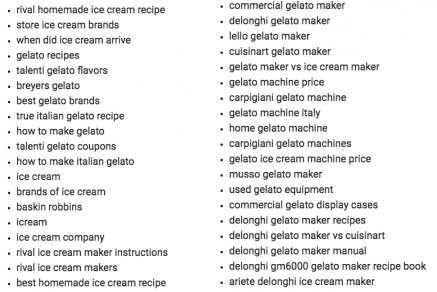
- Keyword Tool. This free tool uses Google Autocomplete to generate hundreds of relevant long-tail keywords. You can also search each engine specifically, if you'd like. If you want to see Search Volume, CPC and AdWords Competition, you'll have to pay for it, but if you're just looking for other semantic words to include in your content, this tool is a gold mine! Surprise, surprise, "gelato near me" is the top result here - pay attention to local SEO!
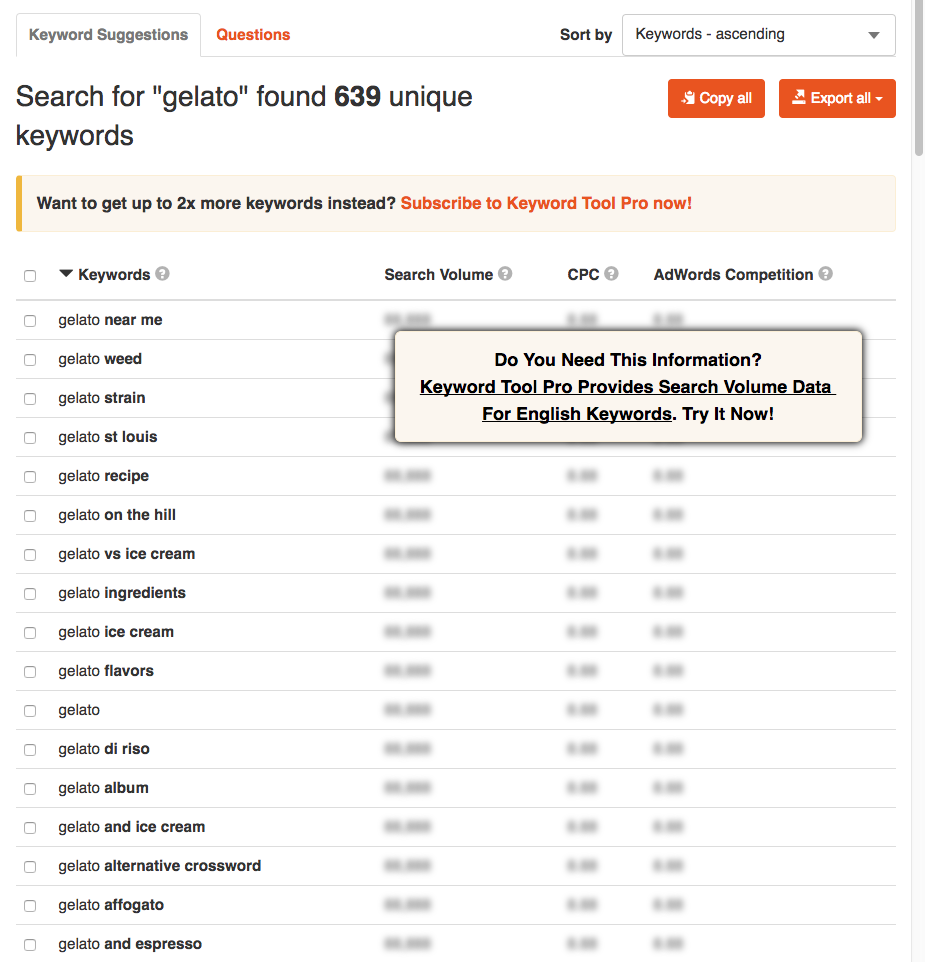
- UberSuggest. This is another tool similar to Keyword Tool, but it goes one step further. It organizes all keywords alphabetically and also allows you to easily click through to Google Trends and further explore that specific keyword. Super helpful if you're looking for a deep dive!
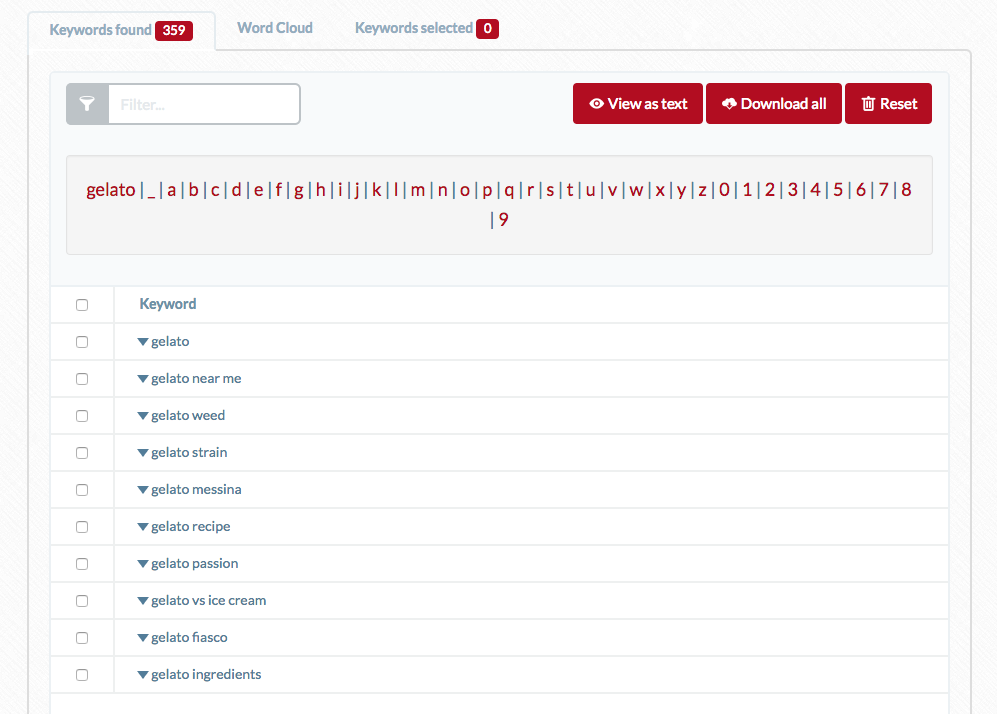
- Google Keyword Planner. This is an oldie but a goodie. Google Keyword Planner is geared towards paid search campaigns, but there are still elements of the tool that help to gain additional insight into other terms people might be looking for. They help to organize keywords into ad groups, which is helpful for identifying user intent.
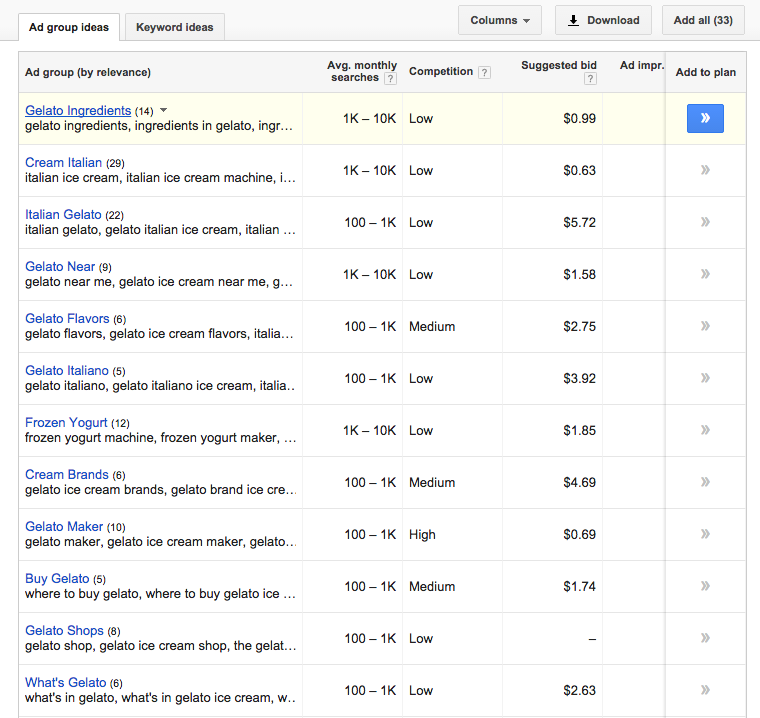
Now that we know what LSI keywords/semantic keywords are and how to find them, let's talk about how to use them the most effectively in your written content!
How Do LSI Keywords Improve Content & SEO Ranking?
As we discussed, search algorithms are trying to determine user intent. So adding semantic keywords to your copy is like giving Google clues as to how and when to find and serve your web page in a relevant SERP.
- Support Your Primary Keyword. It's recommended to still identify your main keyword or key phrase that you'd like to optimize your web page or blog post for, but then support that keyword or key phrase with it's closest buddies - it's closely related LSI keywords.
- Avoid Chances of Penalties. It's also helpful to avoid getting penalized for using the same primary keyword too often. Search algorithms are quickly picking up on keyword stuffing, so to avoid overusing your primary keywords, replace a few with their friendly semantic buddies. If done well, semantic keywords should naturally appear throughout the content anyway!
- Beef Up Meta Descriptions. LSI keywords are displayed in meta descriptions, so feel free to toss them in there to help Google better understand your content.
- Paid Search. Including LSI keywords in your paid search campaigns is a nice way to help strengthen the quality of your paid content as well.
All in all, latent semantic indexing keywords are not only helpful to improve the readability of your content, but they can also provide numerous benefits. It definitely takes a little more work to naturally weave these strategic keywords into your content, but you should see the benefits pay off in the end!

Kiley
Founder & CEO
Kiley Peters is the Founder and CEO of Brainchild Studios, a boutique audience research, content strategy, and website creation agency primarily serving brands targeting Millennial Moms or business owners. She is also the Founder of the Work From Home Playbook, a series of online courses guiding aspiring entrepreneurial moms through the steps of starting a virtual business. She also launched the Brainchild Fund, a nonprofit initiative to support women and girls in business and entrepreneurship Follow her on Instagram.
more posts by Kiley →











Leave a Reply